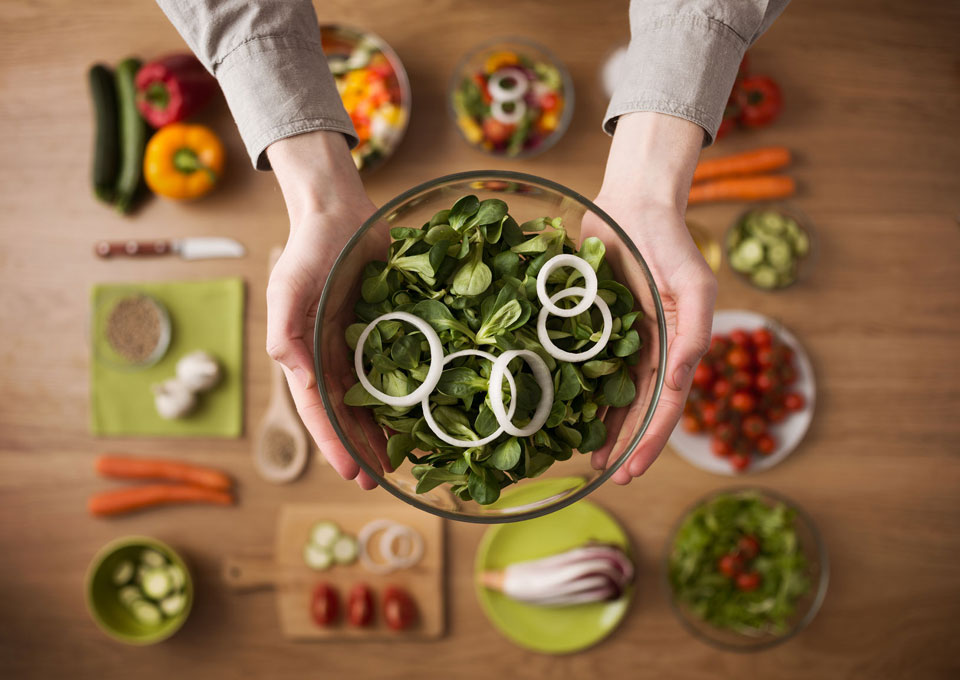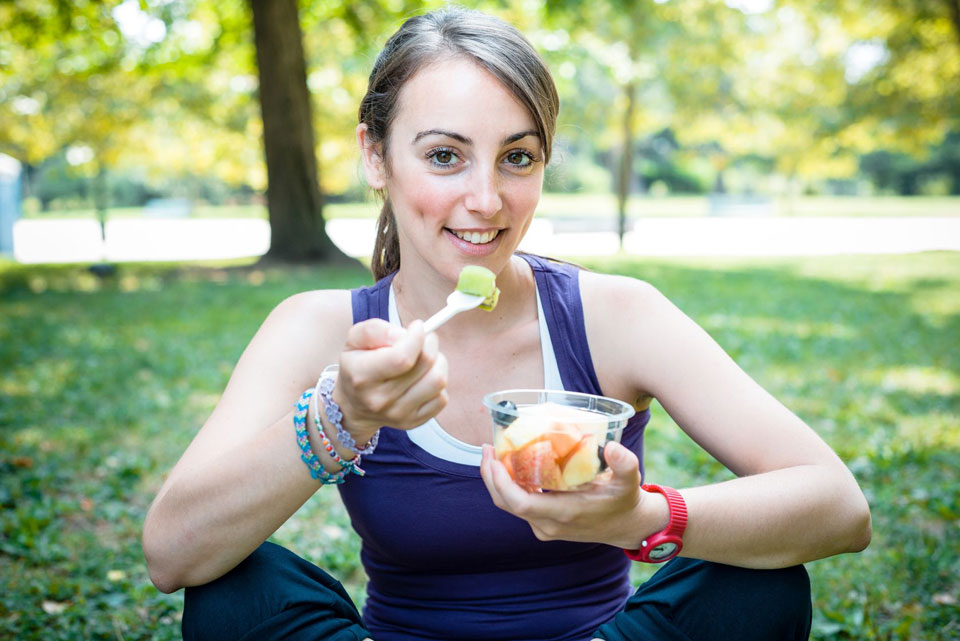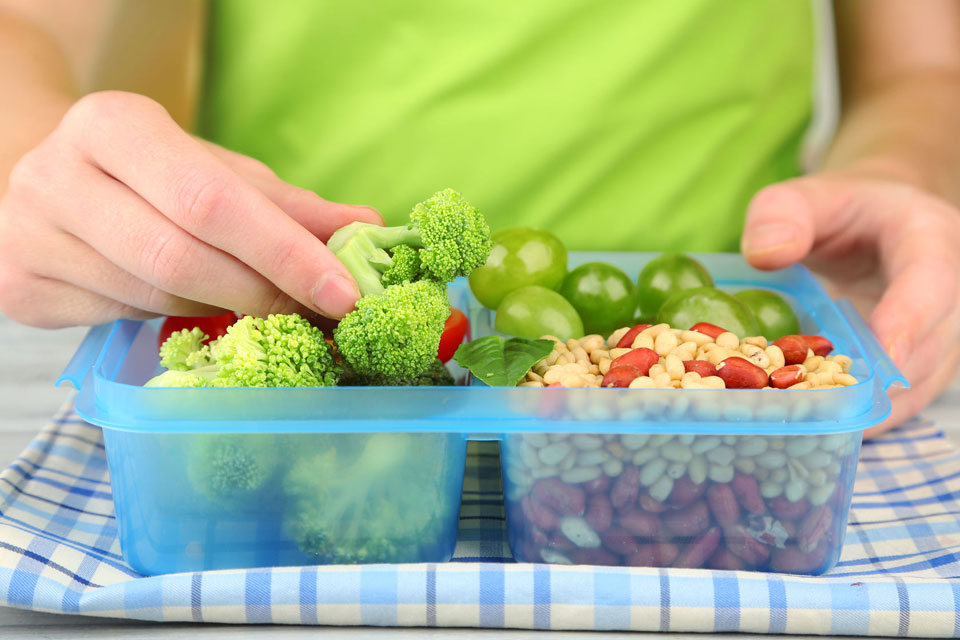As a runner, you know that it takes more than sticking to a fitness program to stay on top of your health goals. Food, the great sustainer of life, plays a critical role in your ability to live life to the fullest, and if you’re like most fitness buffs, you have probably considered adopting a meat-free lifestyle at one time or another.
It’s easy to see why. Scientific research proves that red meat isn’t good for you and we won’t bore you by detailing negative evidence that warns of the dangers of sugars, saturated fats and junk food. But eating healthy is one thing. Going the vegetarian route is another. Especially if you worry that eliminating meat could impact your ability to run.
We’re here to set the record straight, so if you decide to travel this road, you’ll be in the good company of plenty of running stars happy to take a veggie burger over a real one any day of the week!
What’s a Vegetarian?
Ah, the question appears so simple at first blush, but in fact, there are myriad types of vegetarians. Some people prefer to follow a vegan lifestyle and consume only foods that come out of the ground. Fruits. Veggies. Grains. Legumes. If it grows on a tree, bush or pops up from the earth, it qualifies as the mainstay of the vegan’s diet.
Not everyone has what it takes to follow a plant-based diet, so these folk often become “ova-lacto” vegetarians by supplementing their plant-based foods with dairy and eggs, because the addition of these foods offers more variety and recipe options, and it’s a great way to figure out if you can sustain yourself on a meatless diet.
Finally, there’s a category of vegetarian who avoids red meats but consumes chicken and/or fish, so you might say that they eat anything that’s not nailed down — as long as it didn’t come from a cow or a pig. There’s no name for this group, and some speculate that these folks are “playing at being vegetarians.” So there you have it; the many faces of people adopting a vegetarian diet!

Preparing Your Mind For This lifestyle Change
If you were raised in a household that prioritised meat as the mainstay of meals and were led to believe that without it, your body would suffer and you could even get sick, understand that such beliefs are hard wired to your brain.
You might even hear your mum’s voice in your head when you consider adopting a meatless lifestyle, but if you are ready to see where vegetarianism can take you, your adjustment will be easier if you consider these 6 facts:
- It takes time to exchange one habit for another, so if you try going meatless and “fall off the wagon,” that doesn’t mean you can’t get back on the wagon again!
- You may have to put up with warnings from friends and family convinced that your head will fall off your neck if you eliminate meat. They may even try to tell you that you’ll suffer nutrient deficiencies.
- Expect to spend more time shopping for produce and preparing meals because until you internalise the principles of balancing a vegetarian diet, you will probably have to plan more than you once did.
- Follow a “step down” plan to become a vegetarian. First, eliminate red meat from your diet. Next, eliminate pork or chicken. Keep going until there are no more foods to eliminate in keeping with your new way of eating.
- If the aforementioned idea of eliminating foods doesn’t appeal to you, this one may: declare just one day a week “no meat day.” Once that’s become habit, increase the number of meatless days accordingly.
- Learn about protein diversity to reassure your inner worrier that it’s possible to obtain sufficient protein without eating a single burger. Get the 15-percent of total protein calories your body requires to thrive by eating beans, nuts, seeds, tofu, lentils, oats, quinoa, bulgur, cheeses plus dairy, soy and almond milks.

Vegetarianism and Runners: A Match Made in Heaven
Having set your brain on the right track and soothing the concerns of family and friends that you won’t be found wasting away in a hospital bed after abandoning meat, it’s time to move on to the wonderful relationship between runners and vegetarianism. Your understanding of how to substitute nutrients is key to your success as an emerging vegetarian and the following questions and answers show why runners thrive as vegetarians.
How Much Protein Do Runners Need a Day?
About 0.6–0.8 grams per pound or between 81 and 115 grams daily based on a 2,500-calorie runner’s diet. Substitute plant-based proteins to cover your bases.
How Do Meat Substitutes Work?
You’ll see no difference in your performance; plant-based proteins build antibodies that fight disease, fuel the body, effect tissue repair, aid muscle development and hormone synthesis.
Does This Mean You Won’t Need Dietary Supplements?
Actually, you will need iron and zinc since both are lost when you sweat and the body doesn’t absorb either efficiently when following a meatless diet. Correct this by eating fortified cereals, take a multi-vitamin/mineral supplement every day and if you use a cast iron skillet to cook, you’ll even get iron from the skillet.

Is There a Downside For Runners?
As your body adjusts to a meat-free diet, your gastrointestinal system will probably rebel. After all, it’s been pushing meat through your system for decades and now the foods you eat move through your intestines at the speed of light. Expect gas, bloating and bowel changes. Runners recommend a natural digestive enzyme to relieve symptoms as their bodies adjust.
How About Critical Amino Acids?
Got you covered. Combine specific meatless foods so you don’t miss out on any of the 8 amino acids necessary for muscle health: pair grains with legumes (e.g., rice and beans), legumes with nuts, veggies with soy, grains with dairy and veggies with diary. Go ahead. Pile on the cheese sauce when you get your fill of broccoli.

How Do Runners Benefit From Going Vegetarian?
- By eliminating meat from your diet, your chances of developing cancer are lowered, according to the International Agency for Research on Cancer, so if you already run to avoid getting cancer, this doubles your preventative effort.
- Your running routine requires healthy bones; according to runningvegan.com, if you cut back on or eliminate meat, your chances of developing osteoporosis drop dramatically.
- You could win more races! Ultra-runner Scott Jurek tried three times to conquer the 50-mile Minnesota Voyageur Race, but didn’t win until he went from vegetarian to vegan.
- Join the ranks of international stars like Sally Eastall, Jack Maitland, Fiona Oakes and U.S. track and field legend Carl Lewis, each of whom practices a vegan lifestyle.
- Find your vegan bliss by bookmarking sites like Jayne and Bibi Rodgers’ award-winning food and fitness blog for some of the coolest tips and recipes on the planet.
- You might convert someone else. If you believe that good health is a gift, giving away your dietary proclivity to friends doesn’t have to be a hard sell. Just live your life, lead by example and that gift keeps on giving.
What are the drawbacks of being a vegetarian in a nation like Singapore? We would love to know what they are and how you overcame them so you were able to stick to your active vegetarian lifestyle!




